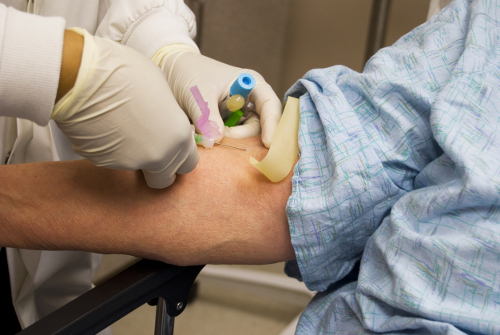 Hyperphosphatemia is a condition that arises from elevated phosphate levels in your bloodstream. It may be something that you have never considered or even realized was possible for your body.
Hyperphosphatemia is a condition that arises from elevated phosphate levels in your bloodstream. It may be something that you have never considered or even realized was possible for your body.
But it can happen, and it could do some serious damage to your system. So, what is hyperphosphatemia, and is there a natural hyperphosphatemia treatment plan? What about high phosphate foods? Are low phosphorous foods good for your health?
We are going to take a good look at hyperphosphatemia, from diagnosis, to how to treat hyperphosphatemia, to a hyperphosphatemia diet. We will cover everything you need to know concerning hyperphosphatemia.
Diagnosis of Hyperphosphatemia
The diagnosis of hyperphosphatemia is somewhat complicated for a few particular reasons. Firstly, hyperphosphatemia doesn’t really have any unique symptoms—at least not any that are obvious. Usually, the outward symptoms of hyperphosphatemia are actually the symptoms of its underlying cause, such as:
- Injury and trauma
- Burns
- Cancer
- Kidney diseases
- Medical treatments (like hemodialysis and chemotherapy)
- Metabolic disorders
- Endocrinological disorders (like pseudo hypoparathyroidism and hypoparathyroidism)
- Hematological disorders
- Ischemic bowel disease
- Immobilization (Note: this is usually in the case of long-term immobilization)
- Genetic inheritance
Essentially, the diagnosis comes in two stages. The underlying condition is commonly diagnosed first, and at this point, doctors will also look for related issues. In the case of hyperphosphatemia, blood tests are best for detecting the higher phosphate levels within the bloodstream. These blood tests will look at:
- Vitamin D
- Phosphate
- Calcium
- Magnesium
- Creatinine
- Blood urea nitrogen
- Parathyroid hormone
It should be noted that doctors may consider hyperphosphatemia early on if you have had issues with your kidneys in the past. Kidney disease, failure, and transplantation often come with high phosphate levels in the blood, as the kidneys help process phosphates in your body.
Once these tests are complete and hyperphosphatemia has been confirmed, you can move on to the next step, which is treatment. The treatment options for hyperphosphatemia are typically twofold: medical and dietary. We will take a look at medical treatment first.
Hyperphosphatemia Treatment
Hyperphosphatemia has two types of treatment. You can treat hyperphosphatemia via diet (which we will get into later), but it can also be treated via some medical options. As we have mentioned, a significant element of treating hyperphosphatemia is treating the underlying cause of the condition.
So in the cases of things like injury or trauma to the body, once they are treated, the phosphate levels in your bloodstream will frequently right themselves on their own. And you will no longer have to worry about hyperphosphatemia. However, for certain issues or when there is no identifiable underlying cause, treatment for hyperphosphatemia may include certain drugs.
For example, there are a number of drugs known as phosphate binders that basically prevent your body from absorbing phosphate. These phosphate binders can include:
- Aluminum hydroxide
- Sevelamer hydrochloride
- Calcium carbonate
- Calcium acetate
- Magnesium hydroxide
- Lanthanum carbonate
Another route that may be taken is a doctor-prescribed diuretic. A diuretic helps the body produce more urine, which in turn can help the body flush phosphate out of its system. Some common medical diuretics are furosemide and bumetanide, but there are a number of natural diuretics, like dandelion and ginger teas; blueberries and pineapple fruits; and lettuce, spinach, parsley, kale, and cilantro leafy greens. In keeping with food, another way you can help treat high phosphate levels is through diet.
Hyperphosphatemia Diet
Depending on what is causing the high phosphate levels in your body, you may be able to lower those levels through changes in your diet. A fair amount of the phosphates found in our bodies are the result of the body’s absorbing them through food.
Changing your diet to foods containing fewer phosphates can help lower the overall amount in your body. You can also avoid foods that have high phosphate content. If you are trying to lower your phosphate levels, try avoiding the following foods:
- Whole grains
- Chocolate
- Dairy products like milk, ice cream and cheese (cottage cheese and cream cheese are okay)
- Organ meats
- Dark cola drinks
- Certain types of fish like pollock, sardines, and walleye
- Vegetables and legumes (artichoke, asparagus, broccoli, beans, corn, lentils, mushrooms, pumpkin, parsnip, spinach, and sweet potato)
Avoiding these foods can help your body lower its phosphate levels and bring an end to your hyperphosphatemia.
Don’t Stress out over Hyperphosphatemia!
Having high phosphate levels in your body sounds like a severe issue, and don’t get us wrong, higher levels of phosphate in your system can be life-threatening if left untreated. That being said, hyperphosphatemia is easily treated, especially if you are targeting its underlying cause.
Getting the root cause taken care of can help dramatically. If more help is necessary, then you can try dietary changes and/or medications to help resolve the issue. Once hyperphosphatemia is discovered, the important thing is to start working on a treatment for it and what is causing it. The sooner you accomplish this, the less damage can occur.
Related Articles:
Understanding Hyperphosphatemia: Causes and Symptoms
Sources
Lederer, E., “Hyperphosphatemia,” Medscape, November 17, 2016; http://emedicine.medscape.com/article/241185-overview, last accessed July 10, 2017.
Kerkar, P., “Hyperphosphatemia: Causes, Symptoms, Treatment, Prognosis, Pathophysiology, Prevention,” ePain Assist, April 18, 2017; https://www.epainassist.com/blood-diseases/hyperphosphatemia, last accessed July 10, 2017.
“Low-phosphorus diet: Best for kidney disease?” Mayo Clinic, February 23, 2016; http://www.mayoclinic.org/food-and-nutrition/expert-answers/faq-20058408, last accessed July 10, 2017.
